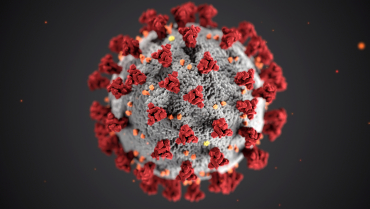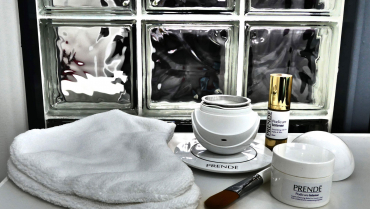HOW to get those painful cracked heels HEALED for summer?
We’ve all heard the saying, ‘summer bodies are made in the winter.’ Well the process of creating sandal worthy heels is pretty similar. The reality, however, is that feet are generally neglected from October through to May, particularly in colder climates like the UK. It’s usually a case of out of site out of mind until British summer time kicks in, for a whole five days, if we are lucky. At this point the shared family foot file often makes an appearance. Admit it, dad, mum and the resident teenagers have all had a half-hearted go at their feet with the same worn out paddle file….. grim but true.
What harm can a bit of dry cracked skin do, I hear you say. Actually, for some people, cracked heels can be a bit of a health hazard. Apart from being painful, cracked heels can serve as a portal of entry for unwelcome pathogens, leading to problems such as secondary bacterial infections. For individuals who have a compromised immune system or other underlying health conditions, such as diabetes, this can be particularly dangerous. Not to mention the fact that even a superficial heel fissure has the capacity to become much deeper and extend into the dermis, leading to ulceration if left unmanaged.
So what causes cracked heels and who is more prone to them?
Being overweight or obese
This requires little further explanation. Carrying extra weight will increase pressure on the heel pad causing the epidermis to crack.
Diabetes
Most patients with diabetes are informed enough about their condition to know they need to take extra care of their feet but many aren’t aware that diabetes can affect the autonomic nervous system. This impacts their ability to sweat, leading to dry skin, known medically as anhidrosis.
Peripheral Vascular Disease
This refers to poor circulation due to diseased arteries. If the plumbing system supplying the legs and feet is inadequate, the skin in that area will get a reduced supply of blood and nutrients, leading to dryness and poor tissue viability.
Smoking
Apart from all the well documented risks of smoking, such as heart disease and cancer. Smoking can and does diminish skin quality. It can reduce skin nutrients and blood flow, leaving it dull, dry and prone to cracking.
Psoriasis and Eczema
Both these skin conditions can result in dry, flaky skin. Psoriasis, in particular, can present on the soles of the feet and palms of the hands as palmoplantar psoriasis. Although palmoplantar psoriasis may visibly look like thick robust skin, it is in fact very friable, in other words it is fragile and will bleed easily if filed, poked and prodded too much.
Menopause and perimenopause
Reduced oestrogen production during this time can have a profound impact on the skin, leaving it dry, inelastic and prone to cracking.
Open-back shoes
Whilst no one expects you to wear your winter boots all year round, if you think you can skimp on the footcare regime and get away with flip flopping it around 24/7, then you are misguided. Open back shoes allow the fat pad under the heel to spread out sideways, causing the skin to crack under pressure.
Treating cracked heels. What are your options?
Moisturise moisturise moisturise
To maintain skin quality and integrity regular moisturising can go a long way. It can reduce superficial heel fissures from splitting or becoming any more pronounced. Podiatrists can steer you towards the best results driven moisturisers on the market. Generally, a product with a humectant such as urea or glycerine are advisable as they have the capability of drawing moisture from the dermis to the epidermis. Humectants prevent moisture loss by acting like a sponge and trapping water where it’s needed.
Urea also has the benefit of being a keratolytic. This means with regular use it has the capacity to break down areas of thickened skin.
When deciding on moisturisers remember not all products are equal in their efficacy, this is why it’s important to consult with your podiatrist before making a purchase. Furthermore, certain lotions and potions can do more harm than good. For instance, petroleum or paraffin-based treatments can rub off onto bed linen. If a fire source, such as cigarette, is then inadvertently placed anywhere near the fabric, you risk starting an inferno.
Callus removal, known by podiatrists as debridement
Your podiatrist can use their scalpel skills to remove hardened skin that is at risk of splitting. Scalpel work will also ensure skin tension is even around heel cracks. This will help to limit the pull the thicker skin has on the heel fissure.
Glue the crack
Obviously don’t start fusing your heel cracks together with superglue or any other art and craft glue that you find knocking around in your garden shed. I’m referring here to medical grade tissue adhesive that your podiatrist can apply as an add on during your routine podiatry appointment.
There is a world of difference between any old shop-bought glue and specifically designed skin glue used by trained medical professionals. Closing the heel cracks using this method can, for some, offer instant pain relief but. A podiatrist will carry out on assessment on your suitability prior to application.
Sock wrap treatment
This can be an easy do-it-yourself treatment at home for cracked heels, but always consult with your podiatrist to check your suitability first. The method involves applying a urea-based cream to the affected areas at night with a damp sock as the first layer and then a dry sock as the second layer. Emollients tend to work better under occlusion, therefore by creating an optimum environment, the excess dry skin should slough off in the morning.
Treat any underlying fungal infections.
Athletes foot can not only mimic dry skin, but often cracked heels and fungal infections go hand in hand. A podiatrist can advise on the best antifungal treatments for your condition.
For more information or to make an appointment at Foot Centric, please:
- Call: 01782 703272
- Email: info@footcentric.co.uk
- Visit: www.footcentric.co.uk





